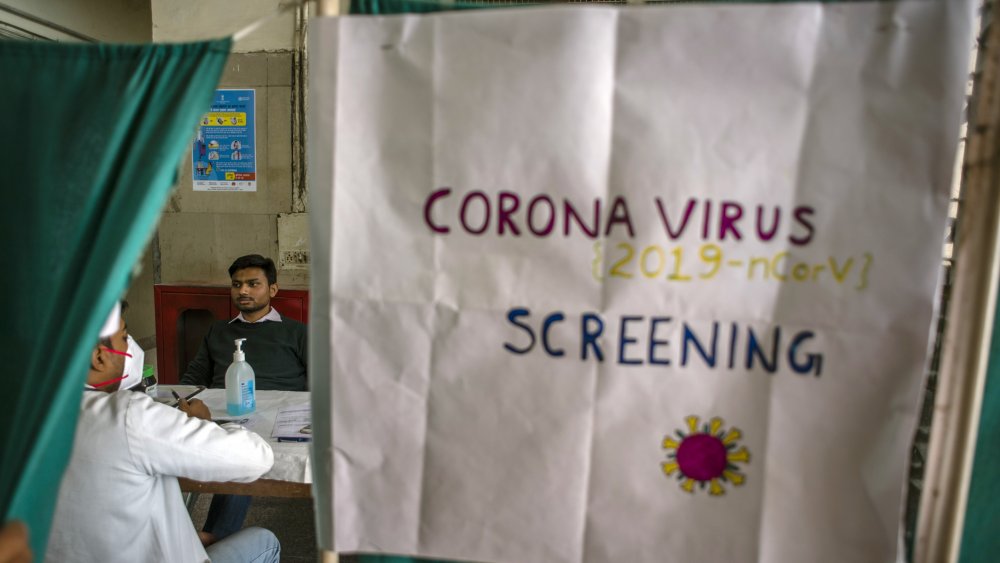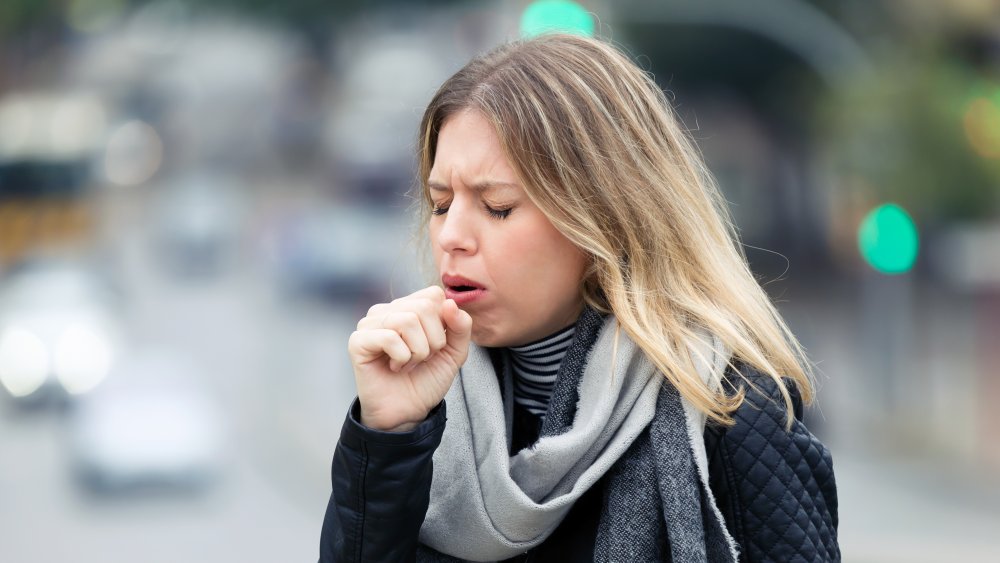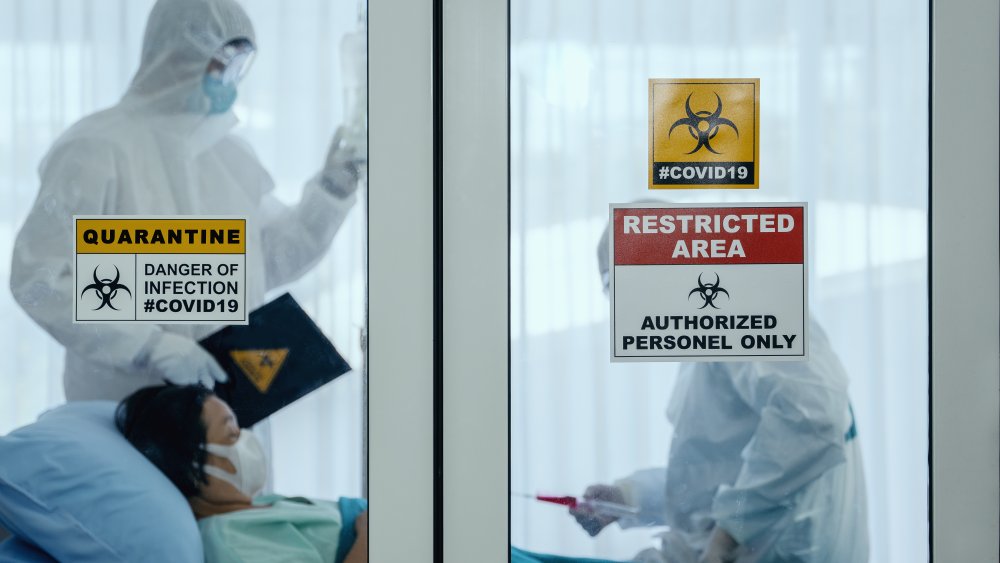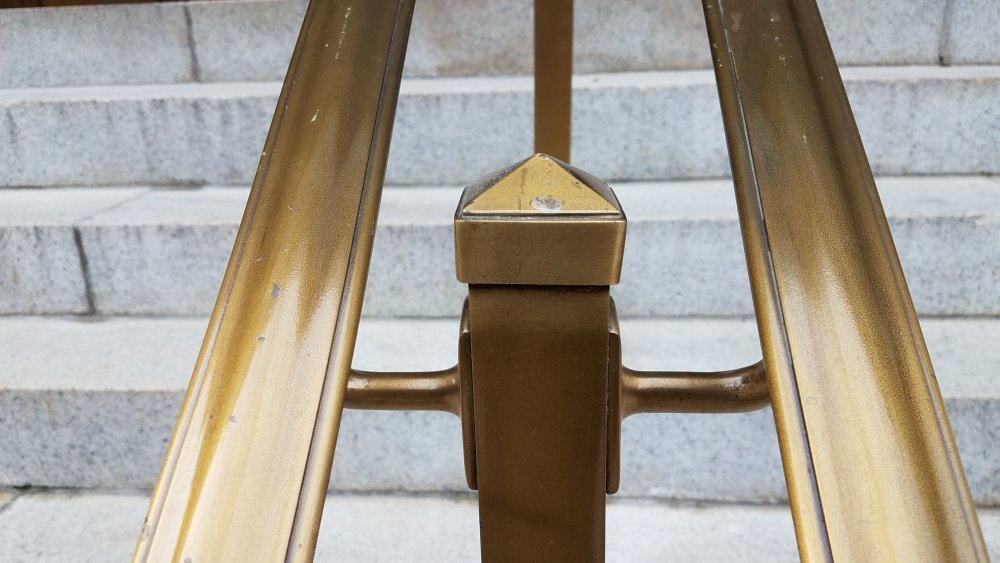New Tests Reveal How Long The Coronavirus Can Live In The Air
At this point, lots of people are afraid of the same thing: You're walking down the street minding your own business, when suddenly, some random person coughs at you, and boom! You now have coronavirus. The pandemic is spreading like wildfire, and while the elderly and frail might be at biggest risk, it's easy to believe that no one's safe. Even Tom Hanks has it. Tom Hanks!
By now, you're probably familiar with the World Health Organization's set of "basic protective measures" to combat COVID-19. In a nutshell: Wash your hands super well and often. Keep at least three feet of distance to people who sneeze or cough. Avoid touching your face in case your hands are contaminated. Use a tissue or do that awkward face-in-elbow thing if you need to sneeze or cough. Oh, and please seek medical care should the need arise, and keep up to the latest news about the coronavirus situation in your area. Your own health and that of others will thank you.
Do you think all of that is a bit overkill? Well, it's not. Time reported on March 11, 2020 that new tests developed by U.S. Government and an assortment of scientists have discovered that the coronavirus is one resilient, resilient pathogen. Read on, and see what you think about hand-washing after we tell you just how long the coronavirus can live in the air.
Coronavirus can live up to three hours in the air
The new tests, which were funded by the U.S. government and the National Science Foundation and conducted by researchers from Princeton University, the National Institutes of Health, and the University of California, Los Angeles, indicate that the airborne coronavirus, which infected people spread by coughing and whatnot, can survive in the air for several hours. This might mean that even if you manage to dodge someone who's coughing or sneezing like the WHO told you to, there's still a chance that you'll end up walking through a mist of droplets containing perfectly viable coronavirus up to three hours later. Still wonder why people are instructed to do that elbow-coughing thing?
The new testing method and its findings were only released on March 11, so they have not been peer-reviewed yet. Still, according to microbiology professor Julie Fischer of Georgetown University, "It's a solid piece of work that answers questions people have been asking, and shows the value and importance of the hygiene advice that public health officials have been stressing." So, yeah. It's probably a good idea to keep keeping those hands away from your face after all. There's no telling what they might have picked up — especially since the same tests found out that the coronavirus can survive a frankly worrying amount of time on many surfaces.
Covered with coronavirus?
Yeah, about those surfaces. While the coronavirus could live in the air for a worrying amount of time, it's not exactly going to give up and skulk away when its impressive airtime is over. Surfaces, it turns out, are prime stalking ground for COVID-19, and as such, the lifespan of an active virus isn't just hours — on certain surfaces, we're talking about days.
Let's say that someone with coronavirus coughs without covering his mouth, and what we're going to politely call "viable virus" lands on cardboard — maybe a box on its way to someone. That virus will set up shop on that particular material for up to 24 hours, so for once, you'd have a reason to hope that the delivery guy is late. It's even worse with hard materials like stainless steel and plastic. According to the study, the coronavirus can survive "up to two to three days" on such surfaces.
So, what about antimicrobial surfaces?
There are some substances, like copper, that are notoriously antimicrobial. In fact, copper's so good at killing assorted coronavirus strains that the University of Southampton (via Science Daily) pointed out in 2015 that due to the metal's ability to kill coronavirus strains like SARS and MERS quite rapidly, it could potentially be used to combat the spread of a coronavirus.
However, while it's certainly true that copper and coronavirus aren't a match made in heaven, it's still not a good idea to go around licking all available copper surfaces. While COVID-19 does indeed perish relatively quickly on copper, the new study found out that viable virus can still hang around copper surfaces for up to four hours. That's a lot of time to put your hand on a copper railing and absentmindedly brush your face with your hand.
So, what can we do, seeing as even the supposedly excellent coronavirus killers like copper can carry the virus for hours? Well, as professor Julie Fischer puts it, we should basically listen to the basic hygiene instructions public officials have been giving us and recognize that they're not just for show. "What we need to be doing is washing our hands, being aware that people who are infected may be contaminating surfaces, and keeping hands away from the face," she says.



